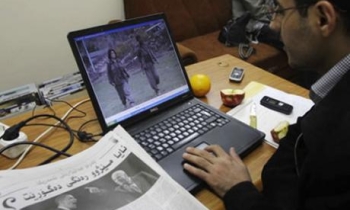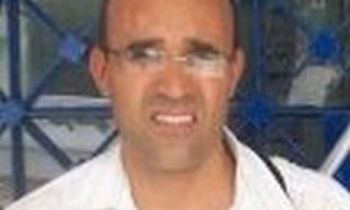MADISON, Wis. - Wisconsin's second-largest newspaper is letting readers help decide what to put on its front page in an experiment designed to boost interest in the paper.
The Wisconsin State Journal is posting a poll on its Web site allowing readers every weekday from 11 a.m. to 4 p.m. to pick their favorite out of five story ideas. Barring late-breaking news, the story typically will appear on the front page the next day.
Tuesday's front page included the first "reader's choice," a look at Ford Motor Co.'s announced plant closings and job cuts. The wire story, which received 41 percent of the 192 votes cast, beat out stories on ex-convicts who return to Madison and President Bush's spying program.
Ellen Foley, editor of the paper that she said has a daily circulation of 90,000 and 147,000 on Sunday, said the effort will connect the paper's print edition with its Web site while giving editors an immediate sense of their readers' opinions.
She said paper was not shirking its responsibility to judge news because editors provide the choices and don't have to follow the readers' pick.
"The smart editors of America ... all understand that interactivity is part of our future," she said. "Doing that in a credible way and in a transparent way is the trick. This particular feature is appealing because it combines both of those values."
The paper launched the effort on Monday after testing out the technology last week and explaining the move Sunday in a note to readers from managing editor Tim Kelley.
Kelley hinted that more sports and columns could wind up on the front page because they generally are the most popular stories on the Web site, www.madison.com/wsj.
In a test run last week, readers favored a local story about two backup University of Wisconsin-Madison football players who were arrested on marijuana charges over news that Osama bin Laden had issued a new warning of attacks in the U.S.
Readers could pick Tuesday from stories on whether two municipal governments should merge, anti-bullying efforts in schools, the Senate Judiciary Committee's vote on Samuel Alito, a chain store that overcharged customers or fish oil's ability to prevent cancer.
"I think that's a great idea," said Kelly McBride, a faculty member at the Poynter Institute, a journalism training center in St. Petersburg, Fla. "If we are going to make the printed newspaper survive, we are going to have to figure out a way to make it more interactive with the audience."
But former Madison Mayor Paul Soglin, a reader of the paper who writes a blog, said Tuesday he gave the paper credit for trying to interact with readers but doubted whether this was the right way to do it.
"Involvement is one thing; abdicating front page placement is another," he wrote on his blog. "If the readers choose Carolina Panther cheerleader escapades, is that going to trump the city council's meeting? Sorry, we still need an editor."
The paper is among the largest owned by Davenport, Iowa-based Lee Enterprises, a chain of 58 daily newspapers. Foley said the move was not a companywide effort.
Brent Cunningham, managing editor of the Columbia Journalism Review, said the effort is an echo of the so-called public journalism of the 1990s in which newspapers increasingly reached out to readers to help set their agendas.
He said the initiative could cause controversy in some circles but said it sounded reasonable because editors narrowed the selection of stories and could override the readers if necessary.
"I can't think of any other paper that's doing this," he said. "But there's a lot of experimentation underway out there to try to balance this need to take what readers want into consideration while also not completely abdicating our news judgment."
Drew Salisbury, 21, represents the type of reader the newspaper wants to attract - someone who is young and gets much of his news online. Salisbury said he understands why papers are trying to reach out to more people, but he was no fan of the State Journal's idea.
"I like the idea of a press that publishes what they think is important rather than what everyone wants them to," the UW-Madison junior said. "That's the whole idea of a free press."









